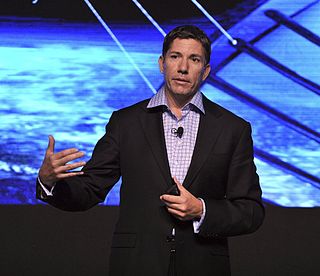A Quote by Hamdi Ulukaya
Unlike the objective of far too many companies, manufacturing is not about a quick 'exit.' It is centered on long-term value creation.
Related Quotes
Being captive to quarterly earnings isn't consistent with long-term value creation. This pressure and the short term focus of equity markets make it difficult for a public company to invest for long-term success, and tend to force company leaders to sacrifice long-term results to protect current earnings.
My primary early interest was in marketing and my aim was to improve its theories, methods and tools. Early on I pressed companies to adopt a consumer orientation and to be in the value creation business. I didn't pay much attention to the social responsibilities of business until later. Now I am pressing companies to address the triple bottom line: people, the planet, and profits. I found that companies were too much into short term profit maximization and they needed to invest more in sustainability thinking.
I think companies trying to exercise a so-called inversion should be hit with an exit tax. So I want to change behaviors, and I am deeply distressed about quarterly capitalism, because I think it is causing businesses to make decisions that are not helping the long-term profitability of American corporations or the success of our economy.
Since we cannot know too much about the long term effects of our particular lives, and since success and fame are not good measures of the value of what we have done, it should be enough for any of us that as far as we can tell, in some small way we have made humanity's future better rather than worse.


































